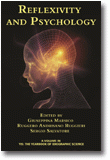
Reflexivity and Psychology
Edited by:
Giuseppina Marsico, University of Salerno
Ruggero Andrisano Ruggieri, University of Salerno
Sergio Salvatore, University of Salento
A volume in the series: Yearbook of Idiographic Science. Editor(s): Sergio Salvatore, University of Salento. Jaan Valsiner, Niels Bohr Professor of Cultural Psychology, Aalborg University.
Published 2015
Reflexivity is a category that is too appealing not to arouse interest. It is a concept largely diffused in several psychological domains, as well as associated with epistemological, theoretical, methodological and practical discussions. At the same time, it is a very polysemic notion, understood and used in many different ways.
If one approaches the notion and tries to identify the semantic boundaries of its usage, the seeming solidity of the term fades away, and a rather liquid semantic field emerges – a field where several interpretations coexist, being contingent to the context of the discussion in which they are implemented. This is the reason that makes the notion of reflexivity a prototypical example of the difficulties encountered by Psychology – and more in general social sciences –in the effort to define their own language. The term “reflexivity” ‐ like many others the language of Psychology is full of – is used in daily life and thus its semantics is shaped by the pragmatic, contingent functions it serves in such communicational circumstances. The apparent – from afar ‐ clearness of the concept does not concern its conceptual, epistemic status, but the capacity of the sign to contribute efficaciously to mediate and regulate the exchange.
The theoretical elaboration of the notion of reflexivity can be seen as one of the ways of performing the challenging task of developing an intentional language for Psychology. By working on such a notion one can realize that common sense lies at the core of psychological science and what it means to separate the former from the latter, so as to pursue the foundational task of developing Psychology as a theory‐driven science.
CONTENTS
Editorial Introduction: Psychology of Reflexivity and Reflexivity for Psychology, Sergio Salvatore, Giuseppina Marsico and Ruggero Andrisano Ruggeri. Theoretical explorations. Reflexivity in the History of Psychology, Sven Hroar Klemple. The Reflective Mind and Reflexivity in Psychology. Description and Explanation in a Psychology of Experience, Alberto Rosa. The Nature of Generalization in Psychology, Luca Tateo. The Contemporary Perspective of the Semiotic Cultural Constructivism: For an Hermeneutical Reflexivity in Psychology, Lívia Mathias Simão. Aesthetic Aspects of the Use of Qualitative Methods in Psychological Research, Roberto Musa, Himmbler Olivares & Carlos Cornejo. Psychology of Action: German-Scandinavian Critical Psychology and Reflexivity, Martin Dege. Field explorations. Reflexivity, or Learning From Living, Tania Zittoun. Argumentation and Reflexivity, Francesco Arcidiacono. Reflexivity: Applying a Reflexive Process to an Educational Context, Maria Francesca Freda, Raffaele De Luca Picione, and Giovanna Esposito. When Technology Becomes Thinking, Beatrice Ligorio, Susanna Annese, and Rupert Wegerif. Seeking for “Otherness”: Training to the Reflexive Competence, Claudia Venuleo and Marco Guidi. Tacit Knowledge and Opaque Action in the Processes of Learning and Teaching, Vittoria Cesari Lusso, Antonio Iannaccone, and Monica Mollo. Microgenetic Evaluation: Studying Learning as It Develops, Brady Wagoner and Eric Jensen. Between Viewing and Transforming: How Organizational Reflexion as Practice Works, Giuseppe Scaratti and Silvio Ripamonti. Social Change and Continuity: Connecting Reflexivity and Community Development, Shose Kessi and Caroline Howarth. About the Authors.
-
Paperback9781681233369
Web price: $45.04 (Reg. 52.99)
-
Hardcover9781681233376
Web price: $80.74 (Reg. 94.99)
- eBook9781681233383

- PSY000000 - PSYCHOLOGY: General
- PSY030000 - PSYCHOLOGY: Research & Methodology
- PSY015000 - PSYCHOLOGY: History
-
 Farewell to Variables
Farewell to Variables
-
 Idiographic Approach to Health
Idiographic Approach to Health
-
 Making Sense of Infinite Uniqueness
The Emerging System of Idiographic Science
Making Sense of Infinite Uniqueness
The Emerging System of Idiographic Science
-
 Methods of Psychological Intervention
Methods of Psychological Intervention
-
 Multicentric Identities in a Globalizing World
Multicentric Identities in a Globalizing World
-
 One Dog Is Enough
Ivan P. Pavlov’s Contributions to Idiographic Science
One Dog Is Enough
Ivan P. Pavlov’s Contributions to Idiographic Science
-
 Ten Years of Idiographic Science
Ten Years of Idiographic Science

